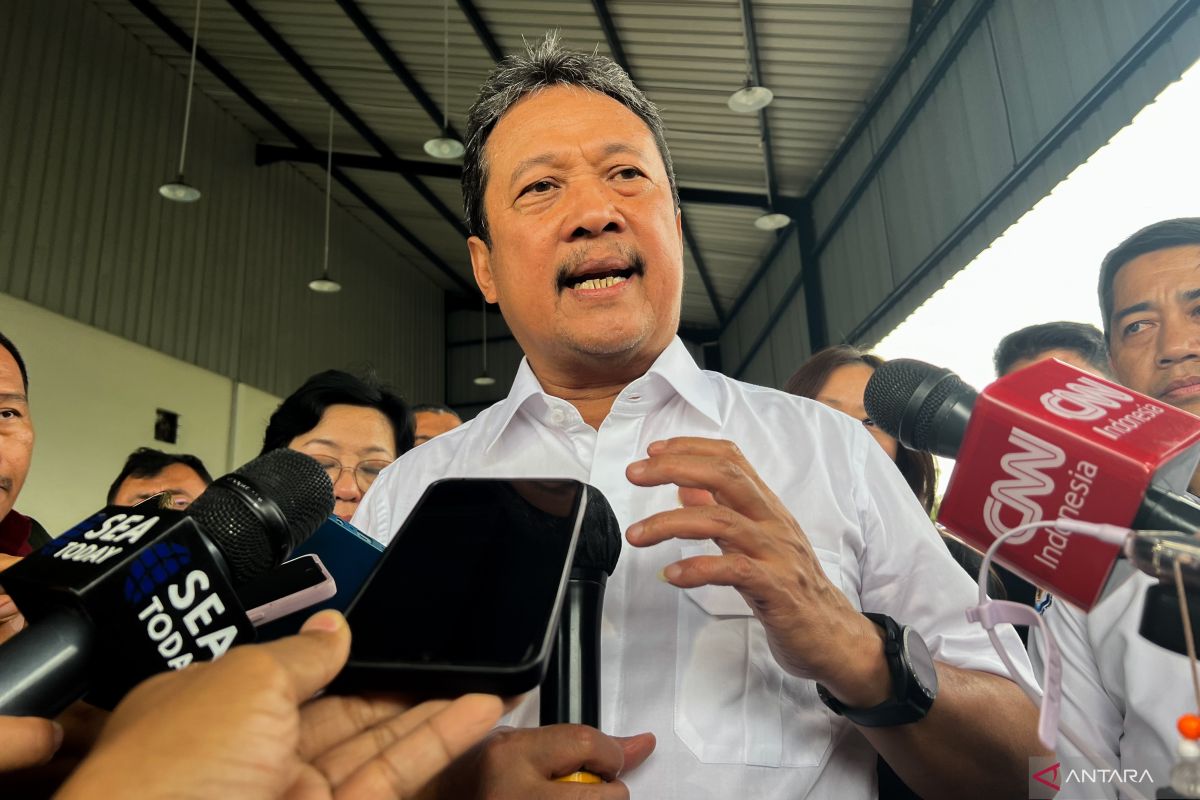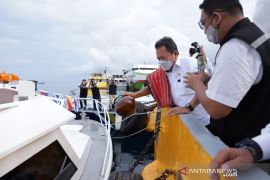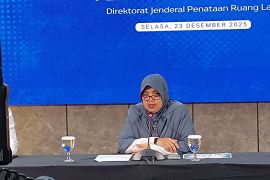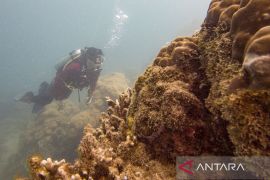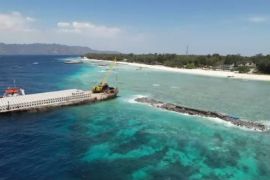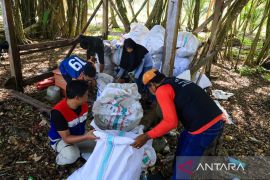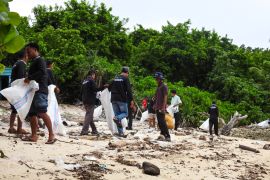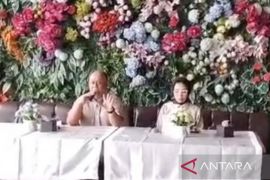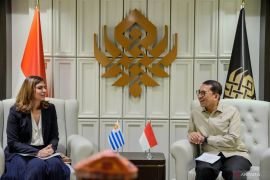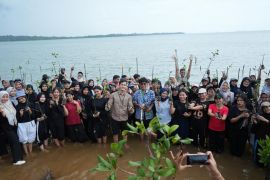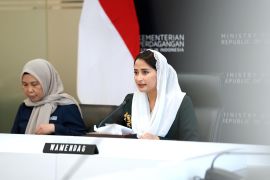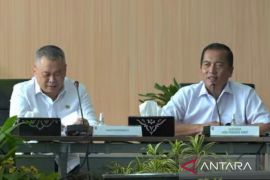"In my opinion, free fishing at sea must be limited," Trenggono said on the sidelines of reviewing a fish processing unit (UPI) of PT Tilapia Nusantara Jaya in Semarang, Central Java, on Saturday.
During a discussion with a number of micro/small to medium/large-scale fish processing business actors from Central Java, including Semarang, Kudus, Pekalongan, Pati, Boyolali, Jepara, and Demak, he stressed that good management is necessary to maintain the balance of marine ecology.
According to Trenggono, Indonesia has thousands of fishermen and fisheries entrepreneurs who depend on this sector.
On the one hand, the fisheries sector is an important pillar, but on the other, the potential for overfishing needs to be watched out for.
He revealed that every day, there are more than 50 thousand ships operating in Indonesian waters. These ships even venture as far west as Perth, Australia, in search of tuna.
"So, if you all look in the situation room—I call it the situation room to be able to see it directly—every day, there are no less than 50 thousand ships operating at sea; they even intervene to search for tuna as far west as Australia," the minister highlighted.
To face these challenges, Trenggono invited all stakeholders, including academics, fishermen, and the private sector, to collaborate on developing more sustainable fisheries cultivation to ensure the future of Indonesia's marine sector.
"This means that the ecology can be maintained properly. But on the other hand, we have thousands or even millions of fishermen and also fisheries entrepreneurs," he said.
He emphasized that all marine biota are interconnected, so if one species is caught without any limit, the resulting impact would damage the balance of the ecosystem as a whole.
Trenggono further said that if fishermen use tools that are not environmentally friendly, the entire marine ecosystem could be threatened as it could disrupt the lives of other species.
Further, he noted, fish caught in the open sea can even contain hazardous materials such as rare earth molecules, mercury, and microplastics that are harmful to human health.
He emphasized that microplastics are a serious problem since Indonesia is said to have the second-largest marine plastic waste in the world, which has an impact on the quality of fisheries.
He highlighted the problem of plastic waste thrown into the sea by ignorant people and fishermen, which is worsening the condition of the marine environment.
Some sailors also throw their remaining fish catch into the sea for reasons of convenience, without considering the negative impact on environmental sustainability.
For this reason, Trenggono proposed stricter policies to address the increasing problems of overfishing and marine pollution, including expanding marine conservation areas as well as implementing measured fishing based on quotas.
He also proposed the development of sustainable marine, coastal, and land cultivation; monitoring and control of the coast and small islands; and cleaning up plastic waste in the sea through a participatory movement involving fishermen.
Related news: RI, Australia act against illegal fishing by Indonesian fishers
Related news: Seized illegal fishing vessels repurposed for Indonesia's fishermen
Translator: Muhammad Harianto, Yashinta Difa
Editor: Arie Novarina
Copyright © ANTARA 2024
